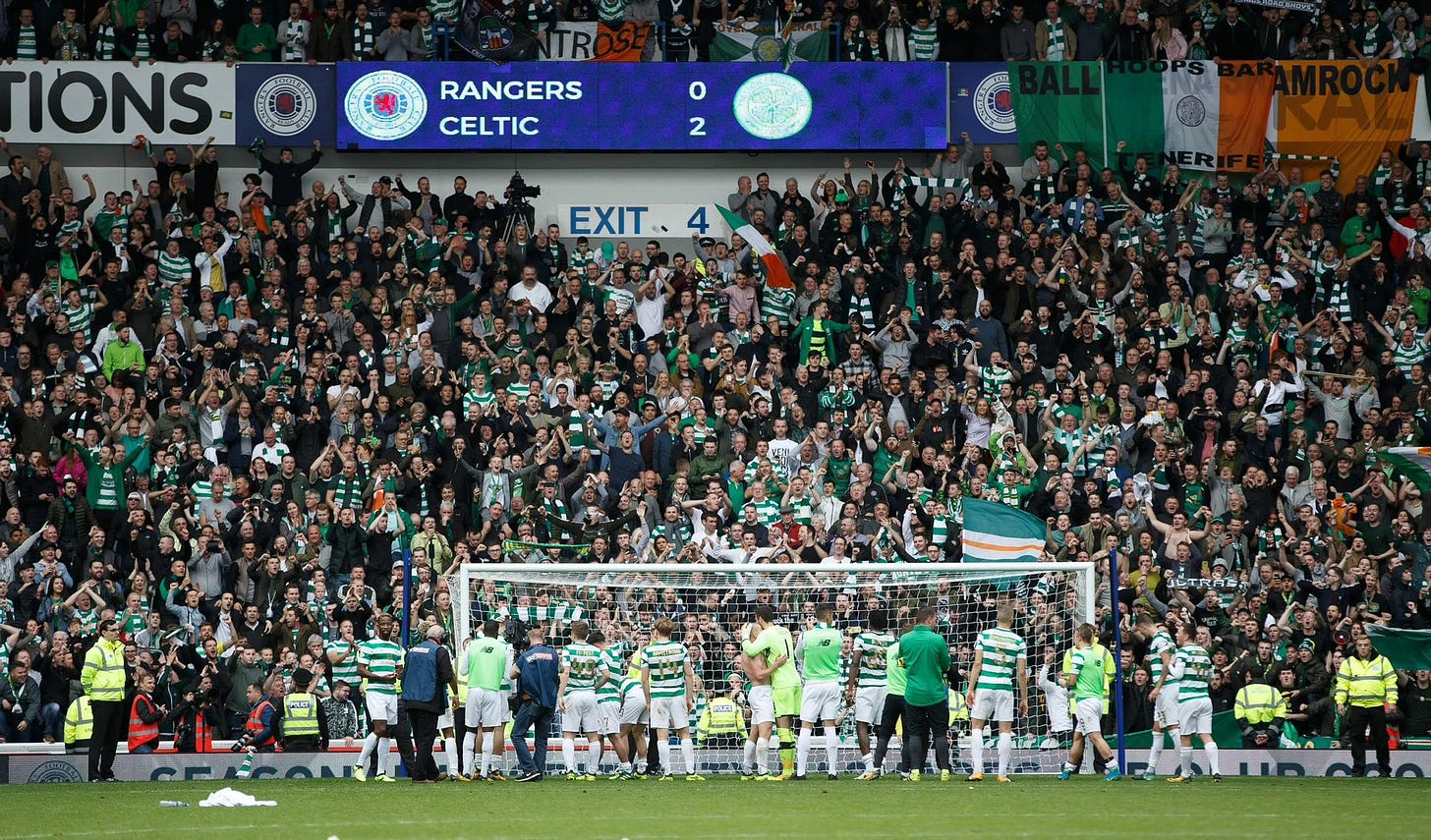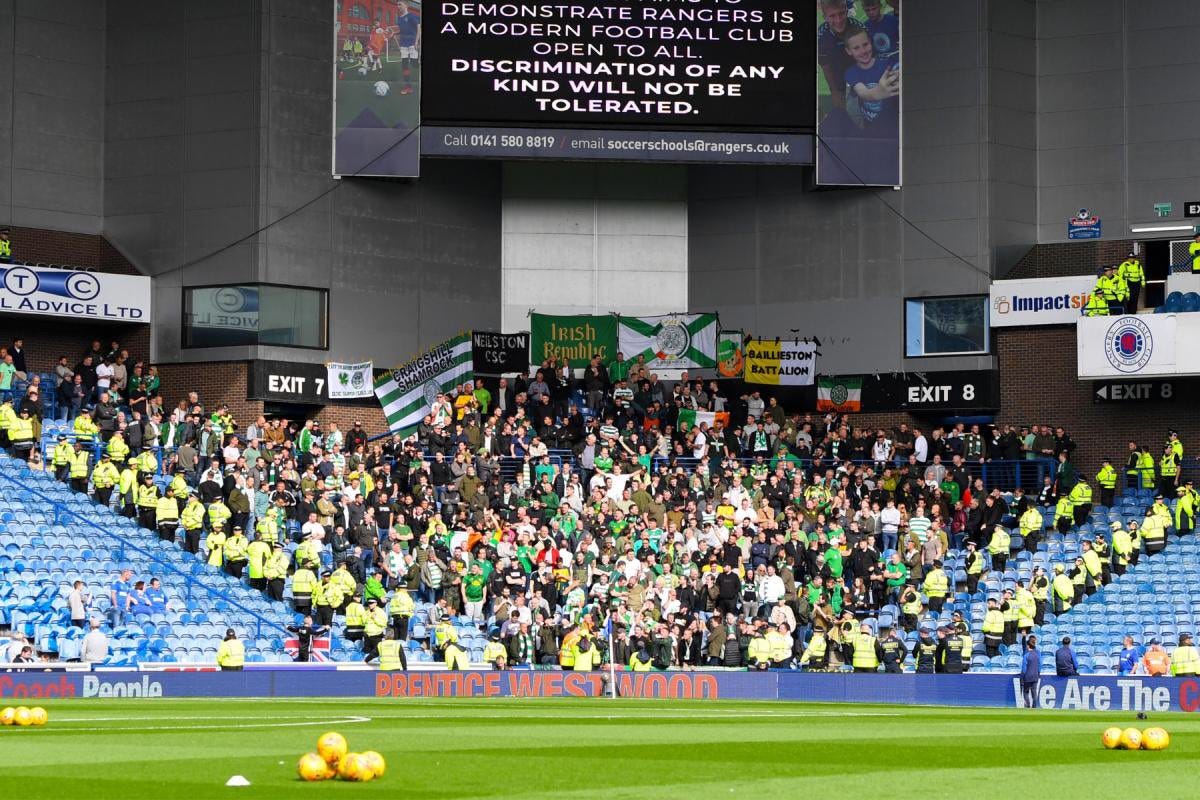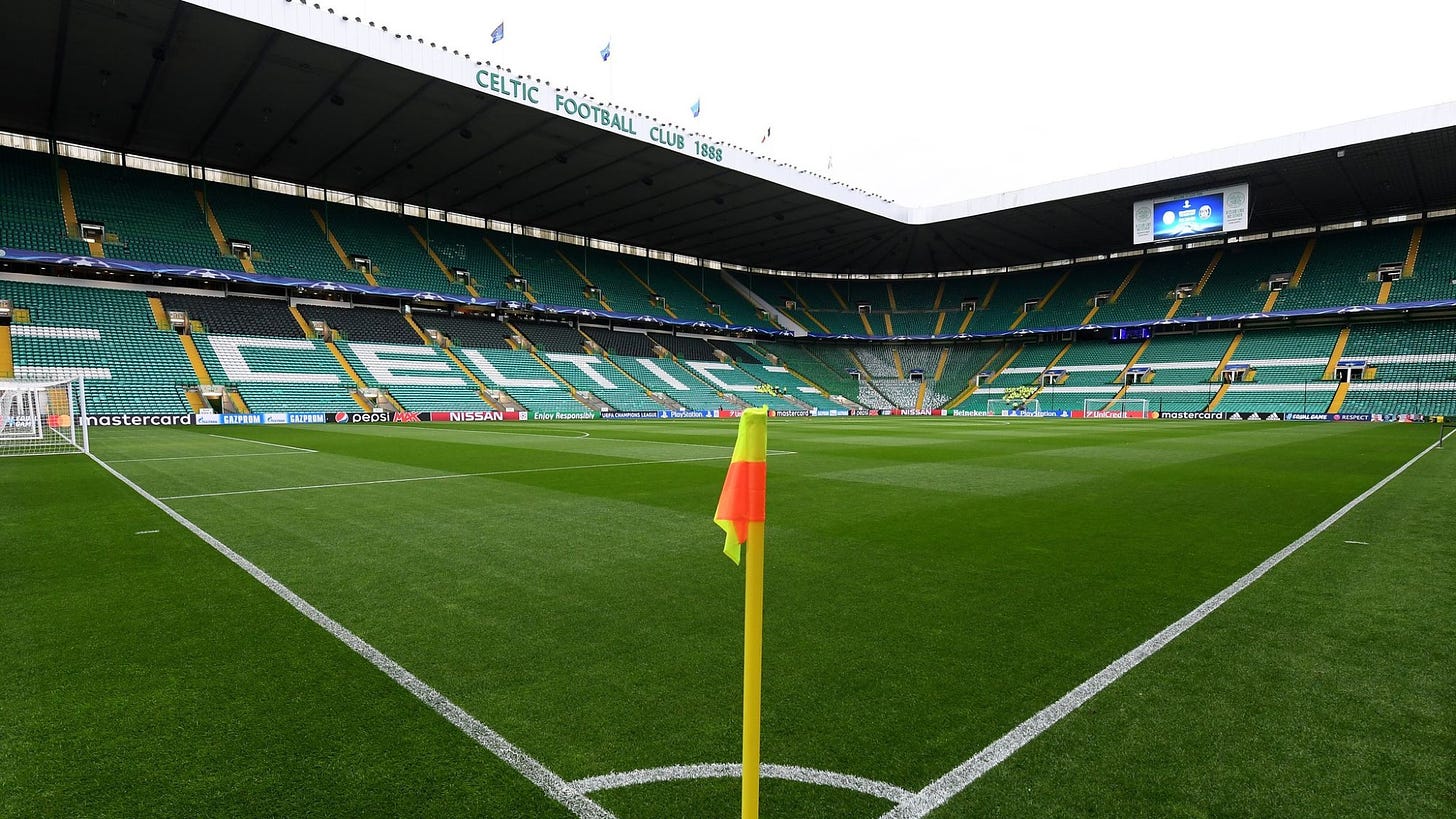The Ripple Effect of Bitterness
The Ripple Effect of Bitterness: How Rangers' Allocation Cut Inspired a Counterproductive Trend in Scottish Football
Scottish football is a passionate and tribal affair, where rivalries run deep, and decisions are often driven by emotion as much as finances. Nowhere is this more evident than the ongoing debacle of reduced ticket allocations across the country. The catalyst for this trend? Rangers’ decision to slash Celtic's allocation at Ibrox, a move born more from bitterness than strategy, as their fans grew angry at the impotence of their club in the face of Celtic’s continued dominance of Scottish football.
This decision from the under-fire Rangers board sparked a ripple effect, with other clubs mimicking the approach, seemingly more concerned with short-term posturing than long-term prosperity. Yet, instead of fostering sell-out crowds and electric atmospheres among the home support, this trend has highlighted an uncomfortable truth about the state of Scottish football: when emotion trumps economics, everyone loses.
As empty seats replace what would have been packed away ends, it’s time to ask the hard questions. Why would any business invest in Scottish football if this is what it has to offer?
The Origin of the Allocation Cuts: Rangers' Decision
The rivalry between Celtic and Rangers is unmatched in its intensity and hatred. With Celtic’s domestic dominance leaving the Ibrox side in our wake, tensions reached new heights. With an impotent Rangers response on the pitch, the militants among the Rangers support demanded Celtic’s away support be drastically cut for the derby games – and so Rangers cut Celtic’s allocation from the entire Broomloan Road Stanbd to a mere 800 tickets – relegating them to a small corner of the stadium.
This was seen and still is seen by many as a bitter reaction to Celtic’s on-field supremacy and seeing swathes of Celtic supports celebrating, rather than a calculated business decision. But in my opinion, it was also a way for the Rangers board to appease the growing band of angry fans that were ready to storm the marble staircase and stick their heads on spikes.
The result? A diluted matchday atmosphere in the derby. The once-famous Glasgow derby, where both sets of fans created a cauldron of noise, of rivalry, was diminished. Rangers couldn’t obviously admit to the real reasons being the allocation cut, so they claimed it was a move to prioritise their home support. Celtic retaliated by cutting Rangers’ away allocation – much to the annoyance of those who demanded the reduction at Ibrox in the first place. Ultimately, the sabre rattling ended in away supporters being banned from both stadiums – which has continued to this day – in part due to safety concerns after Celtic fans were pelted with coins, lighters and booze bottles from an unsavoury element within the Rangers support.
Rangers’ decision set a precedent that other top-flight clubs have since followed — with similarly underwhelming results.
Counterproductive Thinking
Rangers spitting the dummy emboldened provincial clubs to follow suit, cutting the allocation of Celtic and Rangers under the guise of boosting home fan attendances. Kilmarnock, Hearts, Hibernian, and others reduced the space allotted to Celtic fans, seemingly inspired by Rangers’ example. Some even framed these changes as ‘taking a stand’ against sectarianism, but ultimately it was down to the dominance of the Glasgow clubs in Scottish football.
However, the reality has been a far cry from what these clubs had intended to happen following the allocation cut.
In most cases, the reduced away allocations have not been met with increased home ticket sales. Instead, large sections of the stadiums sit empty, a glaring reminder of the short-sightedness of the decision.
With Celtic fans consistently selling out their away allocations, bringing guaranteed income for clubs. Turning these fans away in the hope of increased home attendances has resulted in lower overall ticket revenue.
Football is at its best in front of passionate, vocal crowds. But with clubs now limiting the presence of Celtic fans, it has diminished the spectacle of our matches, reducing the product’s appeal to broadcasters, businesses and neutral fans alike.
Bitterness vs. Business: The Rangers Example
Rangers’ decision to cut Celtic’s allocation was driven by rivalry and resentment rather than sound economic reasoning. And while it pleased a vocal and militant section of their support – along with the provincial clubs following suit - prioritising a short-term emotional victory, they failed to consider the broader consequences.
This approach is emblematic of a larger issue in Scottish football: a failure to think strategically about growth. Clubs continually lament the financial dominance of Celtic and Rangers, yet they actively choose to reject opportunities to maximise revenue from fixtures against these teams. It’s a self-inflicted wound that highlights the league’s short-sightedness.
What is Scottish Football Losing?
For provincial clubs, games against Celtic and Rangers are some of the most lucrative of the season. These fixtures guarantee large crowds, significant media attention, and, importantly, substantial revenue from ticket sales. By cutting allocations for away fans, clubs are effectively turning down money they can ill afford to lose and the implications are far-reaching.
Our clubs operate in one of the most challenging financial environments in European football – not helped by the amateur way the SPFL and the Scottish FA run our game. Revenue from away fans can make a huge difference to clubs – just look at clubs in the lower leagues when they draw the likes of Celtic in the Cup. This additional revenue funds player acquisitions, improvements to stadiums and training facilities, and youth development. By reducing away allocations, clubs are leaving money on the table and are left with a bill they struggle to pay or get into deeper debt to cover.
Half-empty stadiums during televised matches don’t just look bad, they reduce the overall appeal of the league. For broadcasters, a vibrant atmosphere is part of the package they’re selling. Clubs undermining this hurt not only themselves but our game as a whole.
Ultimately prioritising short-term sentiment over long-term strategy sends a negative signal to potential investors. Why would a business commit their resources to a league where clubs willingly forgo the opportunity to maximise revenue and exposure?
The Psychological Factor: Fans vs. Finances
Part of the reason for cutting allocations is rooted in fan sentiment. Clubs want to appease home supporters who feel outnumbered or overshadowed when Celtic visit. Social media amplifies these voices, creating pressure on clubs to act. This approach is flawed.
Vocal fans on social media, don’t always represent the broader fanbase. And even when they do, pandering to sentiment at the expense of financial stability is a dangerous game for Scottish clubs – as they don’t have the benefit of falling back on riches from a TV deal like the English Premier League clubs do.
For fans, football is emotional — but for clubs, it must also be a business. The most successful clubs are those that strike a balance between the two, using emotion to fuel ambition while maintaining a clear-eyed focus on sustainability. Whether our fans like it or not, Celtic are successful because they strike a balance between the two – even if it looks lopsided in favour of finances at times.
Why Would Any Business Invest in Scottish Football?
Scottish football has long struggled to attract significant external investment, and the reasons are painfully clear. Decisions like these highlight a league that often prioritises rivalry and short-term thinking over strategic growth. For potential investors, this is a red flag.
Why would big business invest in a league where clubs make decisions based on emotion rather than finance? It appears to potential investors as unstable and unprofessional. By turning away guaranteed revenue sends a clear message that the league is not serious about maximising its potential. Why would a sponsor or broadcaster invest in a product that undersells itself?
The sight of half-empty stadiums diminishes the league’s image, reducing its appeal to fans, broadcasters, and commercial partners alike.
Yet Scottish football still has tremendous potential, with passionate fans, historic clubs, and a compelling narrative. But it won’t unlock this potential, unless it presents itself as a viable, forward-thinking investment opportunity. Moves like cutting allocations undermine this effort.
So how do we bridge the gap?
If Scottish football is to thrive, clubs must adopt a more strategic approach. Clubs must embrace the financial opportunities that games against Celtic provide, ensuring they maximise ticket sales and supplementary income – such as hospitality.
Instead of alienating away fans, clubs should focus on creating an environment where home and away supporters can coexist, enhancing the overall atmosphere.
Ultimately decision should be guided by a commitment to growth and sustainability, not short-term sentiment or bitterness because their rivals are more successful than they are.
Scottish football is at a Crossroads
The decision by Rangers to cut Celtic’s allocation at Ibrox was a watershed moment in Scottish football — but for all the wrong reasons. What began as an emotionally charged reaction to Celtic’s dominance has evolved into a league-wide trend that prioritises pride over pragmatism.
Scottish football cannot afford to let bitterness and jealousy dictate its future. Clubs must recognise that their decisions have broader implications, not just for themselves but for the league as a whole. By embracing a more strategic, business-minded approach, they can unlock the league’s potential and ensure that Scottish football remains a competitive, and commercially viable product.
If the league fails to learn from this, it risks alienating not just away fans but also the investors, sponsors, and broadcasters it so desperately needs. And if that happens, the only winners will be the empty seats.
The Celtic Pools Weekly Lottery is only £1 each week, and you could win up to £25,000! All net proceeds donated to the Academy.







Enjoyable read.
The truth will hurt some.